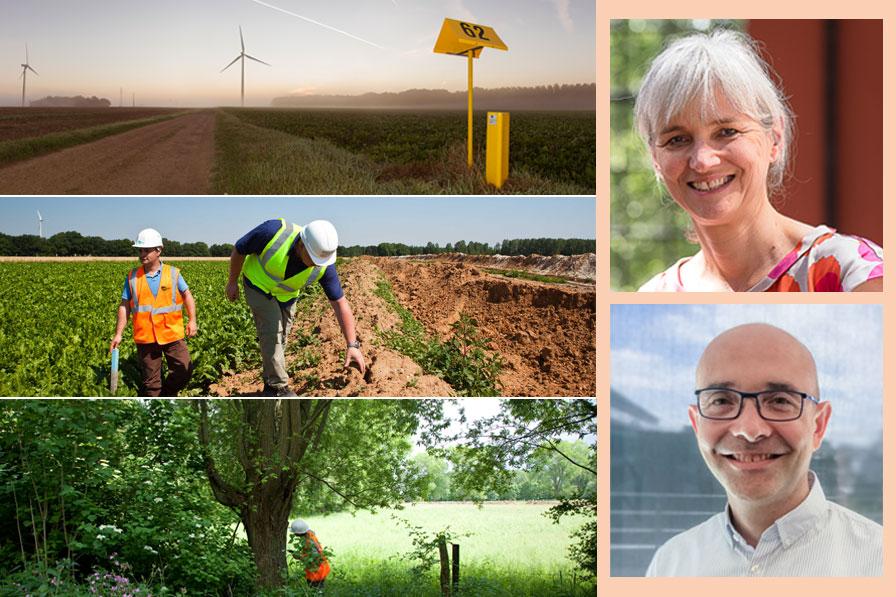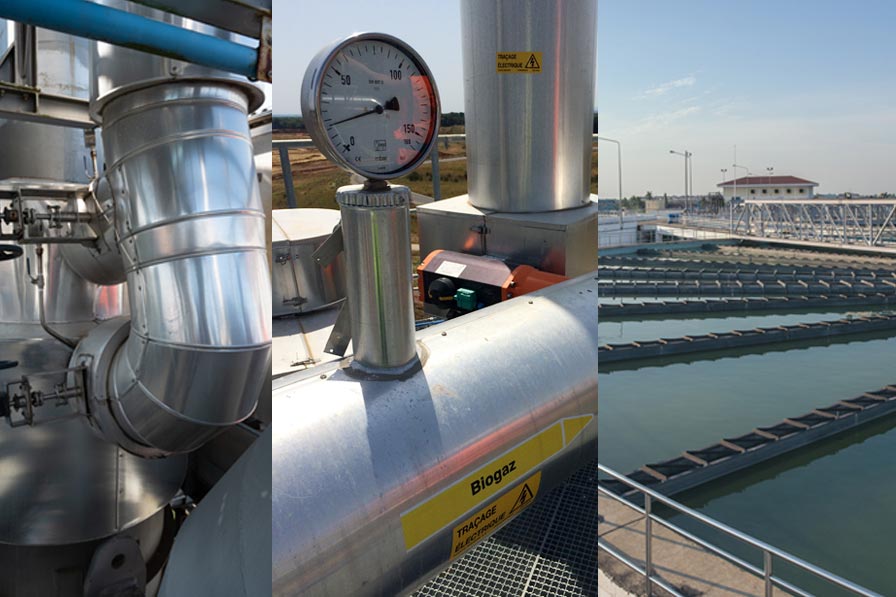New CSR policy: GRTgaz is moving up a gear

This is a key alignment between the company’s strategic vision, societal commitments and specific goals, explain Catherine Brun, Secretary General of GRTgaz, and Christophe Delfeld, CSR Director.
Why are CSR challenges increasing across all sectors of society?
Catherine Brun, Secretary General of GRTgazThe importance of CSR these days for all companies goes without saying! The thing for us now is to move on from a single vision of profitability and financial performance and to make our operations part of a sustainable societal framework. Historically, we transport gas from fossil sources, so we have to explain how we are going to evolve and take action to decarbonise the energy sector.
Our CSR approach is bolstered by our core purpose being included in our Articles of Association. “Together, we enable an energy future that is safe, affordable and climate neutral” is a commitment that we are making to the environment, our society and our regions.
Christophe Delfeld, CSR Director
CSR is a response to society’s challenges and expectations: our customers, our regions, institutions, and more broadly all citizens. For several years, GRTgaz has listened closely to these growing demands. As we see every day in the news, many sustainable development challenges are increasingly pressing, beginning with the climate. Our strong local presence on the ground means we can listen to our partners, initiate constructive discussions, and take part in developing tangible solutions to decarbonise energy and reduce the impact of our own activities even further.
How do we progress from good intentions to evidence of change? How can we make this CSR approach a tangible reality?
Christophe Delfeld
The core purpose is the central element that guides our strategy. It underpins both our new CAP24 business plan and our new CSR policy. The new CSR policy set out in 2021 is the result of a co-construction process and the prioritisation of CSR challenges with company stakeholders (GRTgaz customers, partners, shareholders, employees and departments).
The CSR policy is reflected in 10 priority commitments, in three strategic areas:
- act to achieve affordable carbon neutrality, in keeping with our core purpose,
- meet the challenges of the ecological transition with our employees and stakeholders,
- ensure that our activities are carried out in a responsible manner.
Each of GRTgaz’s 10 commitments takes shape via targets set for 2024, or even 2030 as part of a long-term process for some of them, linked, for instance, to the climate and the environment. Note that each strategic area and CSR commitment contributes to the SDGs (Sustainable Development Goals) defined by the United National and which act as an international reference framework.
10 CSR Commitments
A/ Act to achieve affordable carbon neutrality
- Reduce our carbon footprint
- Step up the energy transition by developing green gases
- Guarantee access to affordable, sustainable energy
- Grow in a sustainable way

B/ Meet the challenges of the ecological transition with our employees and stakeholders
- Promote the development of skills, diversity and quality of work life for our employees
- Provide support for our customers with their energy needs and their decarbonisation
- Co-construct sustainable energy solutions with regional stakeholders

C/ Ensure that our activities are carried out in a responsible manner
- Oversee the safety of people and infrastructures and ensure the continuity of our operations
- Perform our activities ethically and in compliance with regulations
- Protect the environment (other than carbon) and biodiversity linked to the impact of our activities

Each commitment is subject to an action plan and measured via indicators whose monitoring is audited and published in the Declaration of Extra-Financial Performance. This “evidential challenge” is a strong expectation for our CSR, which drives us to act efficiently and transparently towards our stakeholders.
Some of these indicators are particularly demanding for an industrial operator such as GRTgaz, leading us to question our practices and to innovate. I am thinking, for example, of the “Zero agrochemicals” goal for 55% of our sites by 2021, with the target of using exclusively “nature-based” revegetation solutions, if possible, by 2024. We must not forget that GRTgaz has a significant land footprint, with more than 5,000 sites in France with surface facilities and 32,000 km of easement strips for which biodiversity must be protected.
Another key indicator is our CO2 emissions reduction target, in line with the Paris Agreements: a 20% reduction by 2024 and 40% by 2030, with a five-fold reduction in methane emissions between 2016-2024.
Finally, for the development of renewable gas, GRTgaz has set itself the target, working alongside other sector stakeholders, of connecting 12 TWh of biomethane production capacity to the French networks in 2024, and 40 TWh/ year in 2030, i.e. the equivalent of 1.8 million gas-heated households. Likewise, it aims to help reduce the sector’s expected costs, e.g. by lowering the cost of biomethane injection points by 20%.
CSR is also about performing our activities in a responsible manner. To this end, we turn to commitments and goals that now form a historic and indispensable basis for our CSR. These include, to name but a few, all topics linked to the safety of people, industrial safety, the continuity of operations and cybersecurity, ethics and compliance, as well as the implementation of a responsible social policy. It also includes “stakeholder” commitments, in particular measures ensuring satisfaction and support for the customers, regions and partners with which we share the challenge of assisting the energy transition.
Catherine Brun
GRTgaz has an extremely robust CSR policy. Our co-construction with stakeholders recalls the fact that we have always played the role of trusted third party towards both our customers and the regions. And we are fortunate to have employees who are highly committed to environmental issues. Let’s not forget that our GRTgaz core purpose was unanimously approved at the General Meeting.
We are also highly committed to the “affordable” aspect of renewable gases. The goal of ensuring a cost structure accessible to the greatest number of people to make the energy transition a reality, as of today, is both fair and ambitious.
Christophe is also right to highlight our commitment to biodiversity: it's not only about carbon neutrality. The Covid-19 crisis has been a sad reminder of the interdependence of our health and environmental ecosystems. In this respect, we must seek to protect all spaces in which life is present.
How is CSR managed internally?
Catherine Brun
Until now, CSR has been monitored separately. Our current aim is for financial performance and extra-financial performance controls to be fully integrated via our CAP24 strategic business plan, which logically has a number of goals in common with the CSR policy.
Another significant element in our organisation's development is that each of the 10 CSR commitments will have its own manager charged with monitoring the action plans and the CSR commitment goals. To further optimise performance, we are also implementing a more transversal management system, coordinated by the CSR Director, to supplement the rollout in the departments.
Christophe Delfeld
The strengthening of our CSR entails both the new CSR policy and its practical translation into actions and goals, as well as this new management system. All of these will be regularly monitored by the Management Committee and the Board of Directors, and subject to a rigorous reporting and verification process. Our new CSR approach is centred on demonstrating the genuine application of our core purpose, and freeing up visions and skills to reach our goals and meet our commitments. As CSR Director, I am proud to vouch for its success and to contribute both to GRTgaz’s transformation and to a future guided by the challenges of sustainable development. The next step is to become a so-called “entreprise à mission” (a company whose social and environmental objectives are aligned with its stated core purpose). And I believe that we are ready to do this.
Publications


Find out more
